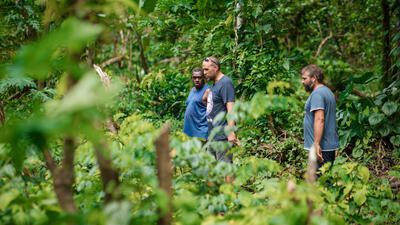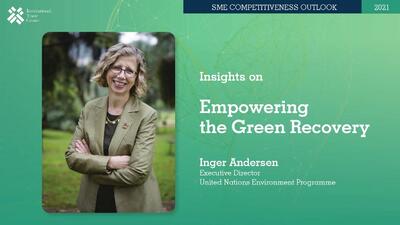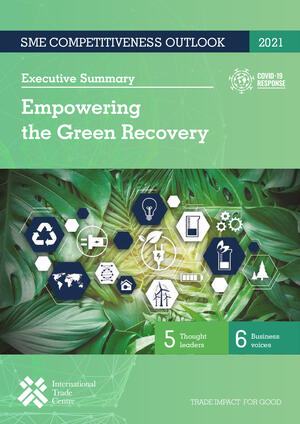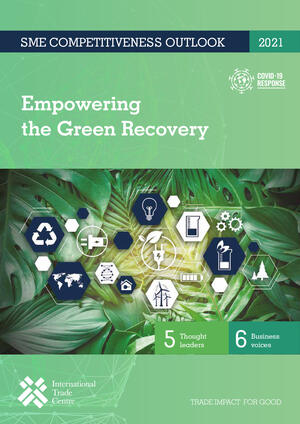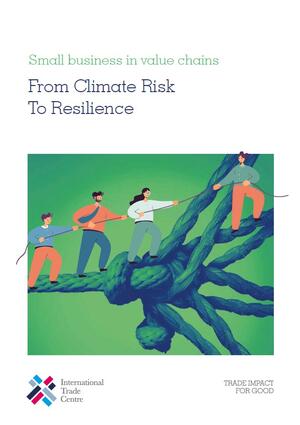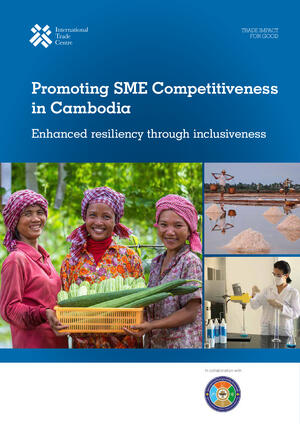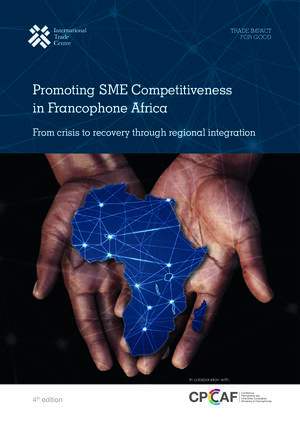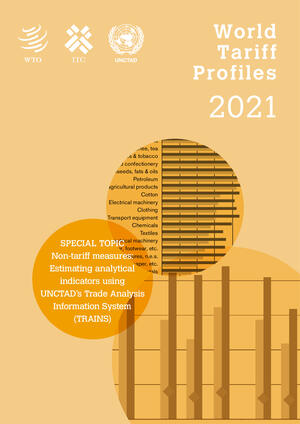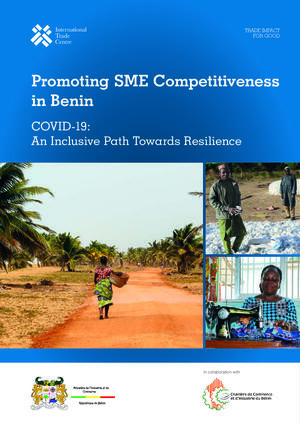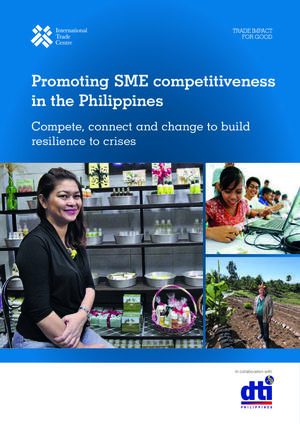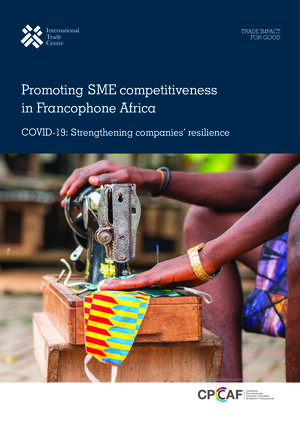
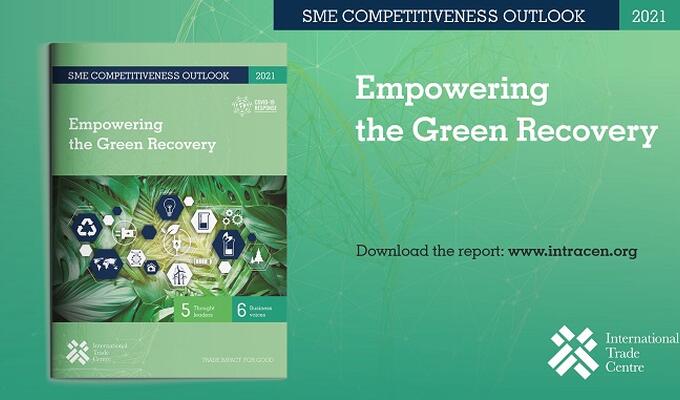
Green recovery: Governments must help firms build resilience, says Jamaican minister
Extensive institutional frameworks can help manage climate change, increase financing and accelerate digital transition, says Kamina Johnson Smith, Minister of Foreign Affairs and Foreign Trade of Jamaica.
The name Jamaica conjures up the sound of reggae music, and beautiful images of sun, sand and lush green landscapes.
Jamaica also has an incredible story of economic recovery to tell. Prior to the pandemic, we had been on a path of robust debt reduction and increased inclusive economic growth, even cutting the gender gap in unemployment to less than 3%. Supporting micro, small and medium-sized enterprises (MSMEs) and building climate resilience were critical to our plans, and this remains the case.
Like other small island developing States (SIDS) however, Jamaica is highly vulnerable to climate change. Our most important sectors, including tourism, agriculture and fisheries, are at risk from increasing temperatures, extreme rainfall, drought and intense hurricanes. Climate models project that by 2050, the dry season will increase by 6.8%, and the frequency and strength of hurricanes will rise.
Between 2001 and 2012, hurricanes, flooding and drought cost Jamaica approximately J$128.54 billion. In 2017, heavy rains resulted in loss of life and damage to infrastructure amounting to J$4.4 billion, equivalent to 0.2% of GDP. The World Bank anticipates that Jamaica will need approximately US$121 million (J$16 billion) annually to cover losses associated with natural disasters.
Our experience underscores an urgent need for adaptive strategies to reduce vulnerability and mainstream climate resilience into development planning processes at all levels. In this context, the point deserves emphasis that while we believe wholeheartedly in the free market, when we speak of ‘Government Help’ for MSMEs we allude to the reality that such fundamental challenges require governmental action to create a supportive and enabling environment.
Jamaica’s MSME sector comprises more than 425,000 companies and represents 90% of the private sector. Climate events have caused MSMEs to suffer major production losses from reduced operational hours and disruption to supply chain and export distribution networks. MSMEs must, therefore, build climate resilience while responding to new market conditions.
The Jamaican Government has set up an extensive institutional framework to support climate change management. This includes establishing: the Climate Change Division; the Climate Change Advisory Board to exchange scientific and technical information; and the Climate Change Focal Point Network, a multi-sectoral approach to policies and programmes that benefit a wide range of stakeholders, including businesses.
Expanding finance and investment
Jamaica has adopted new legislation to enhance financing for MSMEs. Policymakers also are working to facilitate investment in emerging climate-resilient goods and services, as well as mechanisms to encourage MSMEs to pursue climate adaptation strategies.
Few MSMEs are equipped to rebound quickly from the pandemic due to inadequate liquidity, limited access to finance, retrenchment of the workforce or complete shutdown of activity, and lockdowns of varying degrees. These challenges are in addition to traditional constraints faced by MSMEs, such as:
- High cost of energy and raw materials;
- Market access restrictions;
- Inadequate legislative frameworks;
- Limited access to new technologies;
- Inadequate capacity-building opportunities.
The pandemic has also led the Government to accelerate the transition to electronic platforms for key services, improving the ease of doing business in Jamaica.
Expanding our foreign trade is critical to Jamaica’s economic growth. We are committed to developing innovative programmes with local and international partners and stakeholders to support the international reach of our MSMEs. These must be accompanied by concerted efforts to build their capacity to adopt climate adaptation and mitigation strategies. We must recognize such efforts as part of the work of building a more sustainable, green and resilient economy and society.
The Government of Jamaica has partnered with the private sector to develop the E-commerce National Delivery Solutions (ENDS), an app enabling business continuity during the COVID 19 curfew hours. ENDS will allow any business or vendor to connect to and leverage the island-wide network of delivery solutions to have their goods transported safely to clients.
Sources:
- Winston Mccalla and Associates. (2019). Regional scoping study for private sector investment in climate change mitigation and adaptation. Prepared for the Climate Change Division, Ministry of Economic Growth and Job Creation.
- Planning Institute of Jamaica. (2017). Economic and social survey of Jamaica.
- World Bank. (2018). Advancing disaster risk financing in Jamaica. World Bank.
- MSME Unit, Ministry of Industry, Investment and Commerce, Jamaica.
- The Jamaican government partnered with the private sector to develop the E-commerce National Delivery Solutions (ENDS), an app enabling business continuity during the COVID 19 curfew hours. ENDS allows any business or vendor to connect to the island-wide network of delivery solutions to have their goods transported safely to clients.
Small firms generate more than 50% of jobs and greenhouse gas emissions, so their resilience matters: Resilient companies were five times less likely to lay off employees during the pandemic, and more likely to have stable sales, according to new data in the report.
What’s more, small firms are the backbone of communities everywhere. Putting them at the heart of a green recovery can hasten the cultural and economic transformation required in times of climate change.
While small firms can help drive the green recovery, they can't do it alone. Business support organizations, governments, lead firms and international organizations have to provide incentives for small firms to lead the green transition. This report provides a 20-point Green Recovery Plan for key players to help small businesses become more competitive, resilient and green.











